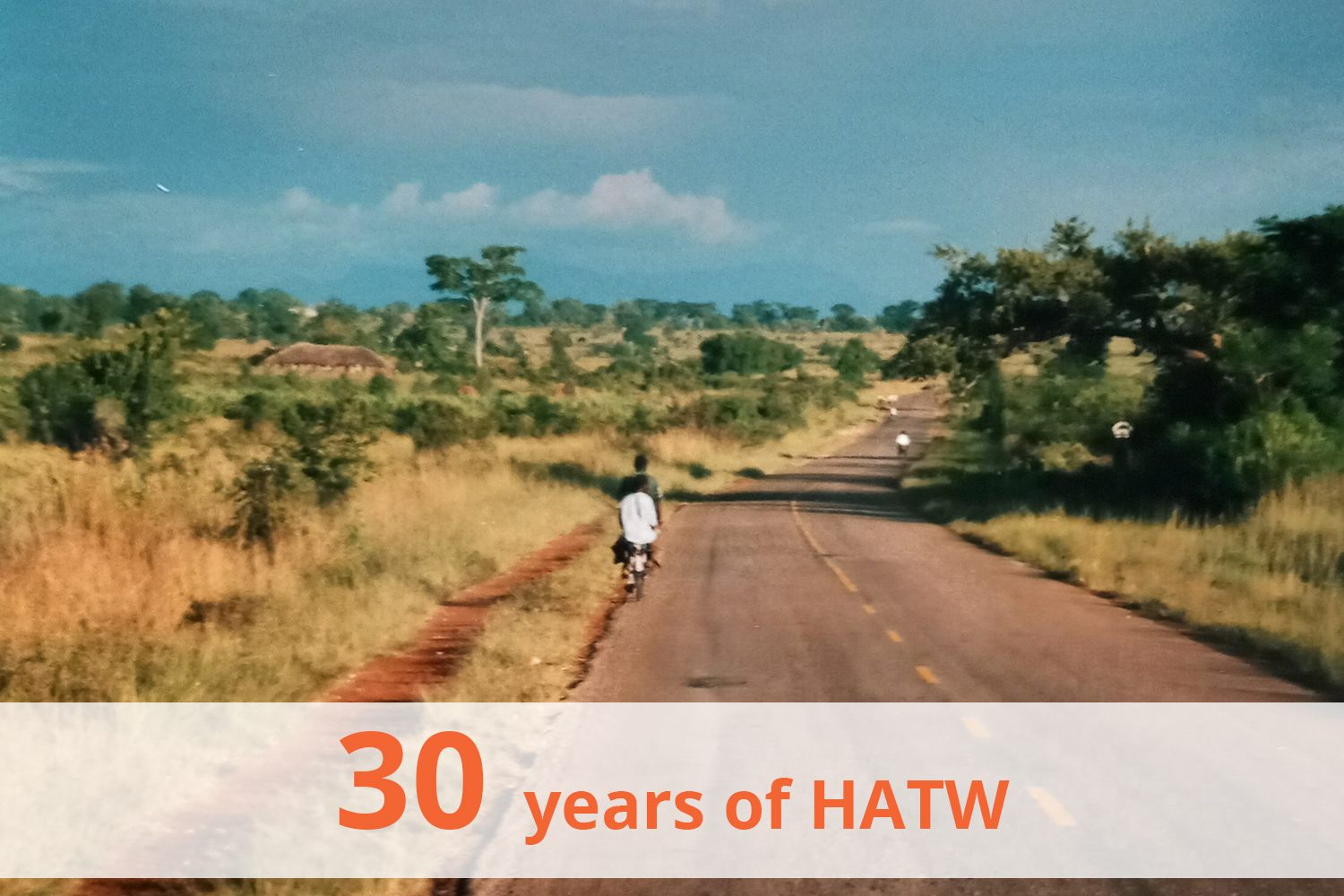“What’s the gravy ladle for?” I enquired curiously, as we stood in theatre, scrubbed and ready to start operating on a young man suspected of having sustained a ruptured spleen in a road accident.
“You’ll see,” grinned Sister Carla as she bowed her head and prayed for God’s blessing on the operation. She then deftly cut open his abdomen, and went straight to the gravy ladle to scoop out the blood that was spilling out from his spleen, which was indeed terminally damaged. The blood was strained through a muslin cloth, into a sterile bottle and then hung up to transfuse directly back into the patient. Carla described how she had scoured the shops for a smaller ladle, and I wondered why she hadn’t asked me to bring one out. She replied “You might never have come if you knew what we do here!” How right she was!
This is a busy, well-run hospital, set… on the top of a hill about two hours to the south west of Kampala. The hospital is run by ‘The Medical Missionaries of Mary.’ These are a wonderful group of Catholic nuns, each trained also as a doctor, nurse, laboratory scientist, pharmacist or administrator. The majority of the staff are of course Ugandan and everyone has been working flat-out for the 3 months prior to my arrival due to an unprecedented malaria epidemic. There is expected to be a surge of illness after each wet season (there are two per year), but apparently for some “El Nino” related reason, the rains kept coming and the mosquitoes kept breeding, spreading the deadly disease. The net effect has been up to 170 children occupying an 80 bedded children’s ward and 70 medical patients filling 35 beds.
The children (and adults at times) get desperately ill because one of the effects of malaria infection can be to break down the blood cells, leaving the children with anaemia… The white palm or sole in stark contrast to the dark Ugandan skin is the first sign as they come into casualty. Then you hear the laboured breathing and you see how white their tongue is. Sadly, many never survive to benefit from a blood transfusion, despite the very efficient laboratory which can provide cross-matched blood in less than 15 minutes – a service that rapid is unheard of in my experience of the NHS.
As you can imagine, this was all quite a culture shock to an East End GP, more used to dealing with minor depression and PMT that with moribund children. But thanks to the skill and plentiful experience of the nurses, the children are dealt with quickly and efficiently and the vast majority do survive. It’s wonderful to see them bounce back once they’ve received their blood transfusion and anti-malarial treatment.
For people who live near the hospital, a … HIV/AIDS programme exists which includes a weekly clinic where people can come and have access to a nurse, doctor or counsellor and collect for free, 6 kilos of rice and a bag of milk powder. I worked there for the first time today, and we were busy, but I’m told the attendance drops off drastically if the food supplies run out. It was heart-breaking to see elderly women bringing in their grandchildren for testing or treatment. Some will have 10 or more to care for if several of their own children die. It must be so hard for these grandparents both to make ends meet, and worry what will happen to these children when they die themselves.
On a happier note, the accident victim no longer possesses his spleen, but he was discharged fit and well, having had three units of blood auto-transfused, and requiring none of the precious blood-bank supplies. However, small gravy ladle donations would be gratefully accepted.
